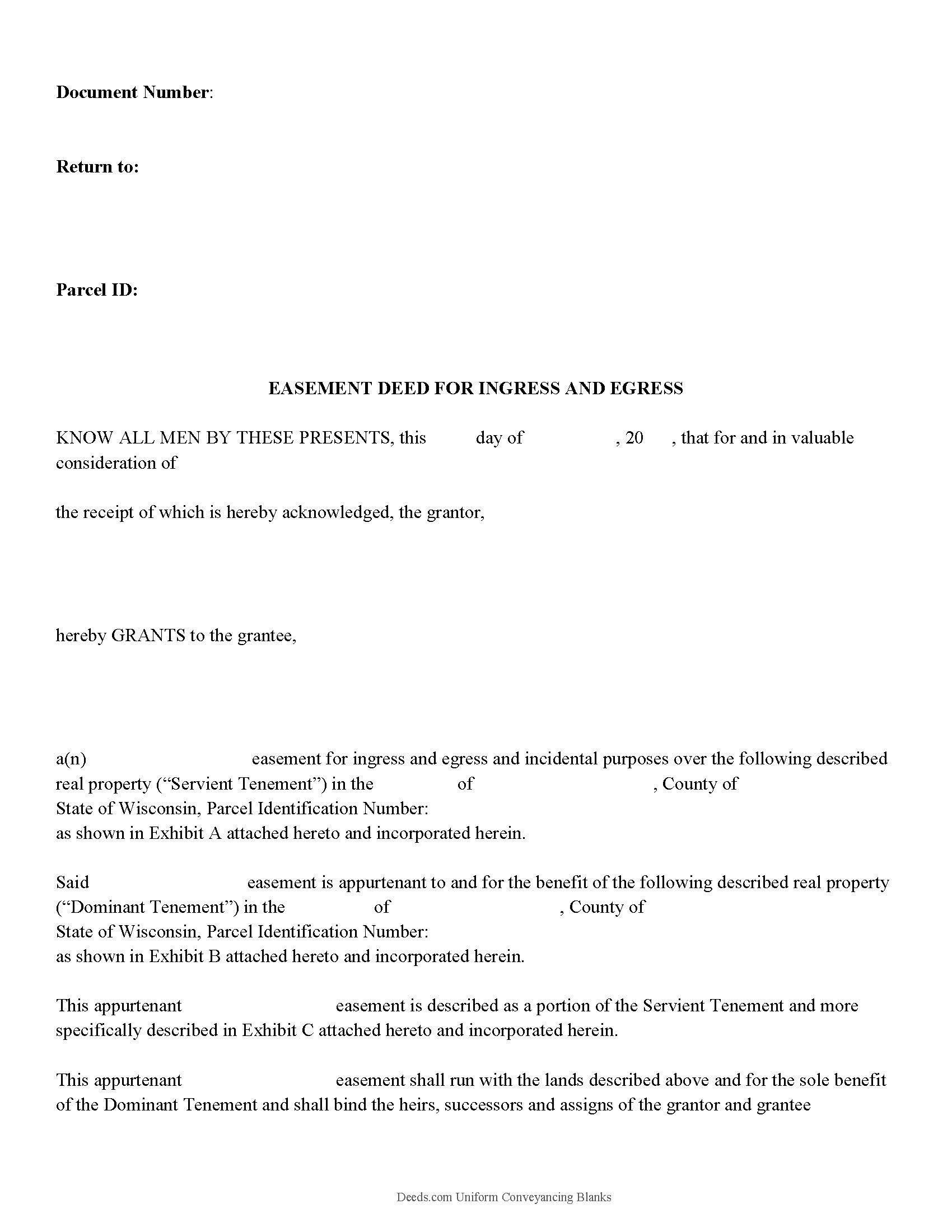Download Wisconsin Easement Deed Legal Forms

Wisconsin Easement Deed Overview

Easements are non-possessory interests in real property that allow one person to use another's real property for a specific purpose. Easements are commonly created for rights of use. The Wisconsin statutes mention only a few specific easements, such as a renewable energy resource easement and conservation easements. A renewable energy resource easement is one that limits the height or location, or both, of permissible development on the burdened land in terms of a structure or vegetation for the purpose of providing access to the benefitted land to wind or sunlight passing over the burdened land. This type of easement should be created in writing and is subject to the same conveyancing and recording requirements as other easements in this state. Renewable energy resource easements run with the land benefitted and burdened unless the document states otherwise (700.35). An easement deed should detail the scope and duration of the easement, and should also provide a legal description.
In order to be valid, an easement deed should be signed by the grantor, and the signature should be acknowledged or otherwise authenticated according to the laws of the state. Any of the officers listed in 706.06 of the Wisconsin Statutes can authenticate an instrument in Wisconsin. An easement deed can be acknowledged in Wisconsin or in another state; in either case, the deed must contain a certificate of acknowledgment (706.07). An easement deed can be acknowledged in this state before a notary public; a judge, clerk, or deputy clerk of a court of record; a court commissioner; a register of deeds or deputy register of deeds; a municipal judge; or a county clerk or deputy county clerk (706.07).
To be enforceable an easement deed must be recorded and indexed (not just filed) by the register of deeds in the county where the property is located in order to impart constructive notice to purchasers of value. If the property subject to the easement is in more than one county, the deed must be recorded in each such county. An unrecorded easement deed will be void as against any subsequent purchaser, in good faith and for a valuable consideration, for the same real estate or portion of the same real estate whose conveyance is recorded first (706.08).
(Wisconsin Easement Deed Package includes form, guidelines, and completed example)